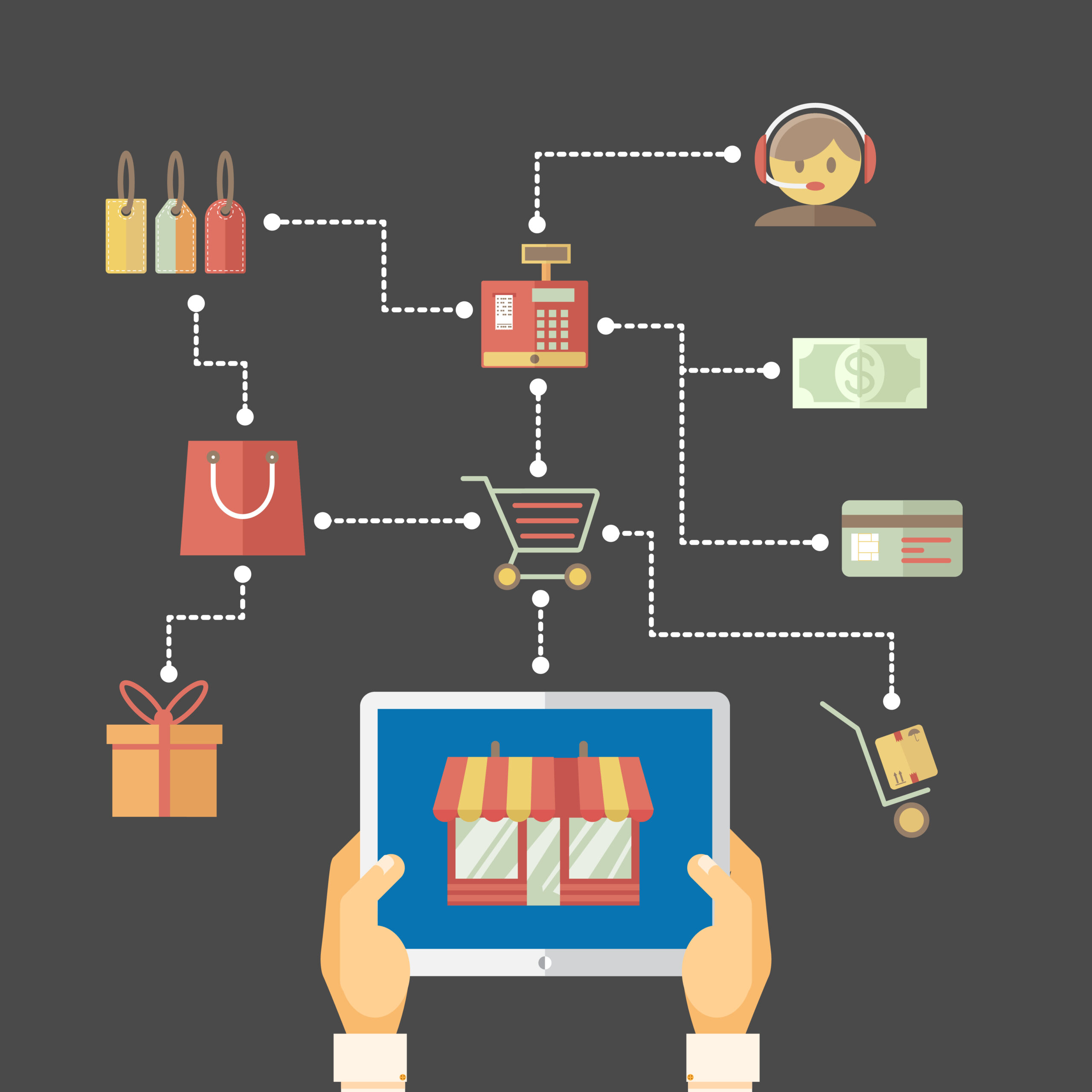
Key Takeaways
- Choosing the right marketing automation software can boost eCommerce growth through automation, personalization, and streamlined marketing efforts.
- Consider defined goals, budget, ease of use, integration, scalability, and feature alignment when selecting marketing automation software.
- Prioritize customer support, demos/trials, data privacy, robust analytics, and industry-specific expertise when evaluating marketing automation options.
In today’s fast-paced digital landscape, harnessing the power of marketing automation is crucial for eCommerce businesses to thrive.
By automating repetitive tasks, personalizing customer experiences, and streamlining marketing efforts, the right marketing automation software can significantly boost your business’s growth and revenue.
However, with numerous options, choosing the perfect tool can take time and effort.
That’s why we’ve compiled essential tips to guide you in selecting the right marketing automation tools for your eCommerce business.
From defining your goals to evaluating features, integrations, support, and scalability, these tips will empower you to make an informed decision that aligns with your unique business needs.
- What do you mean by marketing automation software?
- How do you choose the right marketing automation software?
- 1. Define your marketing goals
- 2. Assess your budget
- 3. Evaluate ease of use
- 4. Consider integration capabilities
- 5. Analyze scalability and flexibility
- 6. Review feature set
- 7. Check for customer support
- 8. Read reviews and seek recommendations
- 9. Request demos and trials
- 10. Consider future integrations and expansions
- 11. Monitor data privacy and security
- 12. Evaluate reporting and analytics capabilities
- 13. Consider industry expertise and support
- 14. Seek user training and onboarding resources
- 15. Take advantage of free trials and pilot programs
What do you mean by marketing automation software?

Marketing automation software is like having a personal assistant that takes care of repetitive marketing tasks for you.
It automates sending emails, posting on social media, and analyzing data. It saves you time and lets you focus on creating great marketing campaigns.
It also helps you deliver personalized messages to the right people at the right time.
With its insights and analytics, you can improve your marketing strategies and get better results.
It’s like having a superpower that makes your marketing efforts more efficient and effective.
How do you choose the right marketing automation software?

Below sharing the 15 tips to choose the right marketing automation software-
1. Define your marketing goals
Clearly defining your marketing goals and objectives is the foundation for choosing the right marketing automation software.
Consider specific aspects such as streamlining email marketing, enhancing lead nurturing, refining customer segmentation, and improving conversion rates.
For example, if you aim to increase customer engagement and drive repeat purchases, you may prioritize a marketing automation tool offering personalized email marketing and customer segmentation capabilities.
2. Assess your budget
Every business operates within certain budgetary constraints.
Determine the financial resources you can allocate to marketing automation software.
Consider not only the initial cost but also the long-term expenses, including integration and customization fees.
Look for software options that offer flexible pricing plans to match your budget and scalability needs.
For instance, if you’re a small-to-medium-sized eCommerce business, you may focus on finding affordable yet feature-rich marketing automation software that grows with your business.
3. Evaluate ease of use
User-friendliness is crucial for effectively utilizing marketing automation tools.
Look for software that offers intuitive interfaces, easy-to-understand workflows, and minimal learning curves.
A user-friendly tool allows you to quickly adapt and implement automation strategies without being overwhelmed by complex functionalities.
This is especially important if you need a dedicated technical team.
4. Consider integration capabilities
Your eCommerce business likely relies on various systems and platforms, such as CRM, email marketing, and social media.
Choose a marketing automation software that seamlessly integrates with your existing tools to ensure efficient data flow and eliminate the need for manual data transfers.
This integration capability allows you to leverage the full potential of automation and create cohesive customer experiences across multiple channels.
5. Analyze scalability and flexibility
As an eCommerce business, your goal is growth. Select a marketing automation software that can scale alongside your business and adapt to evolving needs.
Consider the software’s ability to handle increased data volumes, support growing customer bases, and accommodate future marketing strategies.
A flexible tool allows you to customize workflows and automate new processes as your business expands.
6. Review feature set
Identify the specific features and functionalities you require to achieve your marketing goals.
This may include email marketing campaigns, lead nurturing workflows, customer segmentation tools, analytics capabilities, A/B testing, social media management, or personalized recommendations.
Evaluate how well each software aligns with your specific feature needs to ensure it empowers your marketing strategies.
7. Check for customer support
Reliable customer support is invaluable when implementing and using marketing automation software.
Look for vendors offering responsive support channels like email, live chat, or phone support.
Additionally, consider the availability of resources like documentation, tutorials, and an active user community.
Good customer support ensures you have assistance and guidance whenever you face challenges or have questions during your automation journey.
8. Read reviews and seek recommendations
Research and read reviews from other eCommerce businesses that have used the marketing automation software you’re considering.
Gain insights into the software’s usability, performance, reliability, and customer satisfaction.
Seek recommendations from industry peers, attend webinars or conferences, or join professional networks to tap into the experiences of others.
Real-world feedback tools helps you make an informed decision and avoid potential pitfalls.
9. Request demos and trials
Experience the software firsthand by requesting demos or trial versions.
This allows you to explore the interface, navigate workflows, and test critical features.
Use real-life scenarios and data to assess how well the software meets your business requirements.
For example, you can create sample email campaigns, set up automated workflows, or analyze reporting capabilities.
Hands-on experience helps you gauge usability, compatibility, and fit with your business processes.
10. Consider future integrations and expansions
Anticipate your future needs and growth potential.
Ensure the marketing automation software can integrate with additional tools or platforms you adopt.
Also, consider whether the software offers add-ons or extensions to enhance functionality and accommodate new marketing strategies or channels.
A forward-thinking marketing automation solution should have a roadmap for continuous development and updates to adapt to emerging technologies and industry trends.
This ensures that your chosen software remains valuable as you expand your eCommerce business and explore new marketing avenues.
11. Monitor data privacy and security
In the era of data breaches and privacy concerns, choosing marketing automation software that prioritizes data security is crucial.
Look for platforms that adhere to industry-standard security protocols and offer features like data encryption, cloud security solution, and user access controls.
Ensure the software complies with data protection regulations, such as GDPR or CCPA, to safeguard your customers’ information.
Additionally, incorporating insider threat monitoring can help detect and prevent potential breaches of security within your organization.
Also content filtering software can play a key role in blocking harmful websites and online threats, further enhancing your organization’s data privacy and security efforts.
12. Evaluate reporting and analytics capabilities
Data-driven decision-making is essential for optimizing your marketing efforts.
Assess the reporting and analytics features of the marketing automation software.
Look for robust reporting dashboards, real-time analytics, and the ability to track key performance indicators (KPIs) relevant to your business goals.
Advanced analytics capabilities, such as segmentation analysis or customer lifetime value tracking, can provide valuable insights for targeted marketing campaigns.
13. Consider industry expertise and support
Some marketing automation software providers specialize in specific industries or niches.
If your eCommerce business operates in a specialized industry, such as fashion, electronics, or health and wellness, consider choosing a software vendor with expertise and tailored solutions.
They can offer industry-specific features, templates, and best practices that align with your unique business requirements.
14. Seek user training and onboarding resources
Transitioning to a new marketing automation software may require some training and onboarding for your team.
Evaluate the software vendor’s availability of training resources, such as tutorials, documentation, and online support materials.
Consider whether they offer onboarding assistance or dedicated customer success managers to ensure a smooth implementation process and maximize your team’s proficiency with the software.
15. Take advantage of free trials and pilot programs
Many marketing automation software providers offer free trials or pilot programs.
Take advantage of these opportunities to test the software with a limited scope before making a long-term commitment.
This allows you to assess how well the software aligns with your business needs, get feedback from your team, and ensure that it delivers the expected results before investing fully.
Conclusion
Selecting the ideal marketing automation software is a strategic decision that can propel your eCommerce business to new heights.
By following the tips outlined in this guide, you can navigate through the plethora of options and find a tool that meets your requirements and empowers your marketing strategies.
Remember to define your goals, consider your budget, evaluate ease of use, analyze integration capabilities, review features, check for customer support, read reviews, request demos, and plan for future expansions.
With the right marketing automation tools in place, you can unlock the full potential of automation, drive targeted campaigns, and create memorable customer experiences that fuel your eCommerce success.
Embrace the power of automation and take your eCommerce business to the next level.
